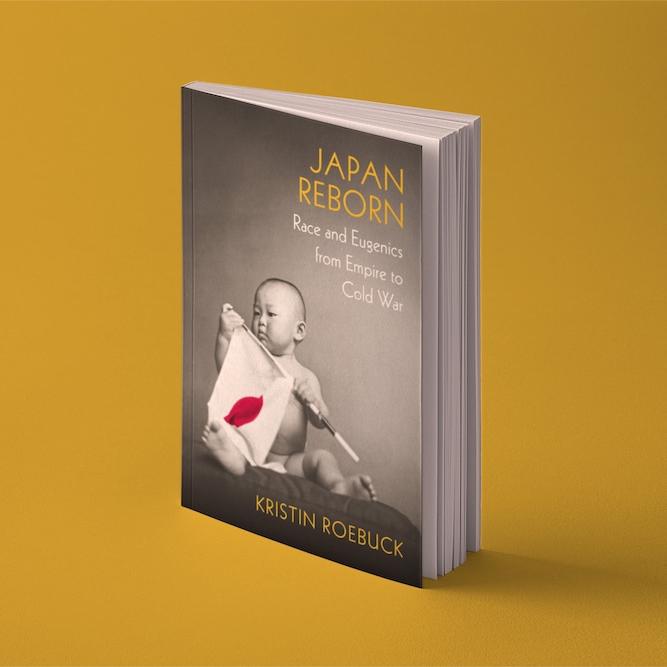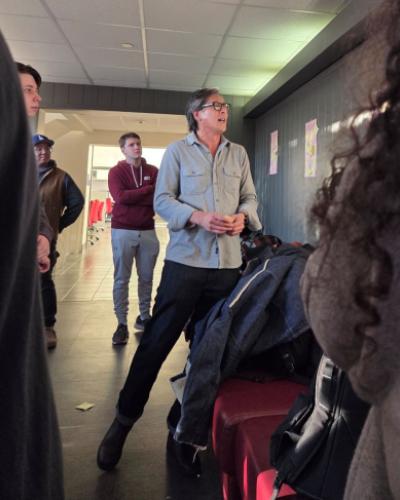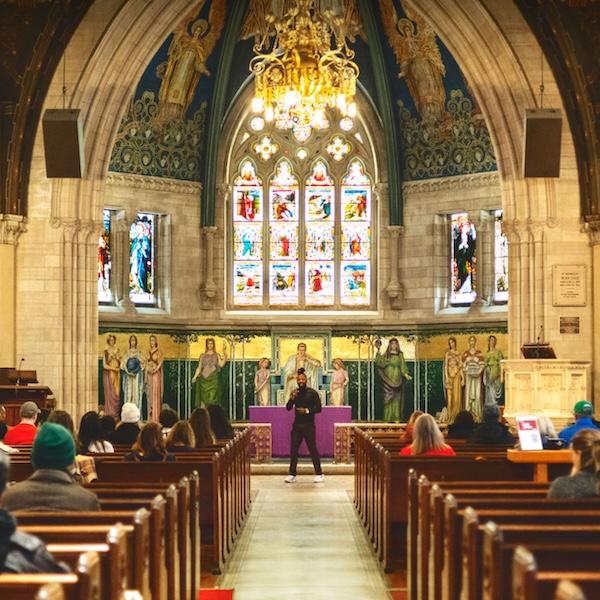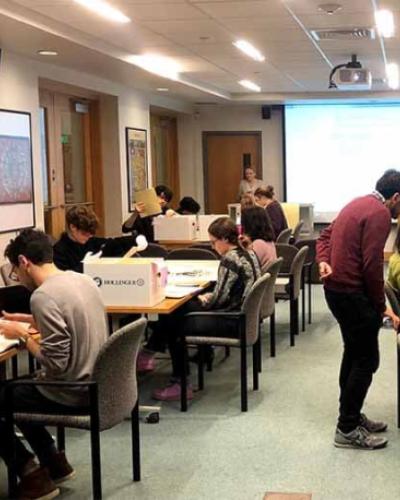“Public history is any form of historical engagement that occurs outside of the traditional classroom, including monuments, museums, oral history, historical preservation, walking tours, media, and performance,” explained Stephen Vider, Assistant Professor of History and Director of the Cornell Public History Initiative, last October. “Our initiative aims to stimulate new conversations about the sedimented histories that shape our contemporary world.”
This semester, Vider has made public history a reality. His “Making Public Queer History” seminar spent several class sessions conducting original research in the Human Sexuality Collection. The class is currently sharing some of their finds on the Human Sexuality Collection’s Instagram (@cornellsexcollects) and Facebook accounts. Also on the Instagram and Facebook accounts, some pictures of them deep into the research and experiencing, in the words of collection curator Brenda Marston, “such thrills as opening a sealed letter with a butter knife.” Student finds so far include a gay version of Trivial Pursuit, an educational children’s book made by students in a 1992 Cornell class on HIV/AIDS, and posters for pioneering LGBTQ musicians.
By doing this assignment students hone their primary research skills and their writing—discovering the challenges of conveying the depth of their learning within a tight word limit. At the same time, the class is engaged in outreach and engagement as their social media posts share their knowledge of LGBTQ+ history with a wider public. The class is also working on a digital timeline of Cornell’s queer history to share next fall in time for Professor Vider’s lecture course on LGBTQ history.





